15 start with E start with E
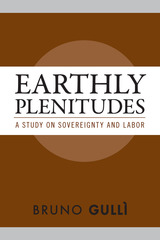
Gullì first reviews approaches to sovereignty by philosophers as varied as Gottfried Leibniz and Georges Bataille, and then looks at concrete examples where the alliance of sovereignty and capital cracks under the potency of living labor. He examines contingent academic labor as an example of the super-exploitation of labor, which has become a global phenomenon, and as such, a clear threat to the sovereign logic of capital. Gullì also looks at disability to assert that a new measure of humanity can only be found outside the schemes of sovereignty, productivity, efficiency, and independence, through care and caring for others, in solidarity and interdependence.

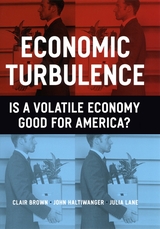
Every day, in every sector of our economy, a business shuts down while another starts up, jobs are created while others are cut, and workers are hired while others are laid off. This constant flux, or turbulence, is a defining characteristic of our free market system, yet it mostly inspires angst about unemployment, loss of earnings, and the overall competitiveness of corporations. But is this endless cycle of fluctuation really so bad for America? Might something positive be going on in the economy as a result of it?
In this penetrating work, three esteemed economists seek to answer these questions by exploring the real impact of volatility on American workers and businesses alike. According to the authors, while any number of events--shifts in consumer demand, changes in technology, mergers and acquisitions, or increased competition--can contribute to economic turbulence, our economy as a whole is, by and large, stronger for it, because these processes of creation and destruction make it more flexible and adaptable. The authors also acknowledge and document the adverse consequences of this turbulence on different groups of workers and firms and discuss the resulting policy challenges. Basing their argument on an up-close look into the dealings and practices of five key industries—financial services, retail food services, trucking, semiconductors, and software—the authors demonstrate the positive effects of turbulence on career paths, employee earnings, and firm performance.
The first substantial attempt to disentangle and make clear the complexities of this phenomenon in the United States, Economic Turbulence will be viewed as a major achievement and the centerpiece of any discussion on the subject for years to come.
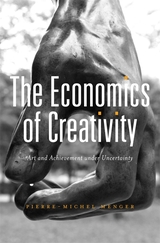
Creative work has been celebrated as the highest form of achievement since at least Aristotle. But our understanding of the dynamics and market for creative work--artistic work in particular--often relies on unexamined clichés about individual genius, industrial engineering of talent, and the fickleness of fashion. Pierre-Michel Menger approaches the subject with new rigor, drawing on sociology, economics, and philosophy to build on the central insight that, unlike the work most of us do most of the time, creative work is governed by uncertainty. Without uncertainty, neither self-realization nor creative innovation is possible. And without techniques for managing uncertainty, neither careers nor profitable ventures would surface.
In the absence of clear paths to success, an oversupply of artists and artworks generates boundless differentiation and competition. How can artists, customers, entrepreneurs, and critics judge merit? Menger disputes the notion that artistic success depends solely on good connections or influential managers and patrons. Talent matters. But the disparity between superstardom and obscurity may hinge initially on minor gaps in intrinsic ability. The benefits of early promise in competition and the tendency of elite professionals to team up with one another amplify and disproportionately reward even small differences.
Menger applies his temporal and causal analysis of behavior under uncertainty to the careers and oeuvres of Beethoven and Rodin. The result is a thought-provoking book that brings clarity to our understanding of a world widely seen as either irrational or so free of standards that only power and manipulation count.
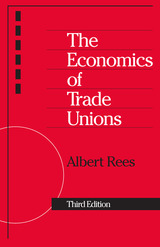

Reevaluates early modern poems of praise as, paradoxically, challenging an artistic economy that values exchange and productivity
Early modern poems of praise typically insist that they do not have a purpose or enact real labor beyond their effortless listing of laudable qualities. And yet the poets discussed in this study, including Ben Jonson, Andrew Marvell, Anne Bradstreet, Lucy Hutchinson, and John Milton, hint at an alternative aesthetic economy at work in their verse. Poetic praise, it turns out, might show us a social world outside the organizing principle of exchange.
In Economies of Praise: Value, Labor, and Form in Seventeenth‑Century English Poetry, Ryan Netzley explores how poems of praise imagine alternatives to market and gift economies and point instead to a self-contained aesthetic economy that works against a more expansive and productivist understanding of literary art. By depicting exchange as inconsequential, unproductive, and redundant rather than a necessary constituent of social order, these poems model for modern readers a world without the imperative to create, appraise, and repeatedly demonstrate one’s own value.
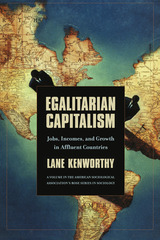

Foregrounding African women’s ingenuity and labor, this pioneering case study shows how women in rural Mali have used technology to ensure food security through the colonial period, environmental crises, and postcolonial rule.
By advocating for an understanding of rural Malian women as engineers, Laura Ann Twagira rejects the persistent image of African women as subjects without technological knowledge or access and instead reveals a hidden history about gender, development, and improvisation. In so doing, she also significantly expands the scope of African science and technology studies.
Using the Office du Niger agricultural project as a case study, Twagira argues that women used modest technologies (such as a mortar and pestle or metal pots) and organized female labor to create, maintain, and reengineer a complex and highly adaptive food production system. While women often incorporated labor-saving technologies into their work routines, they did not view their own physical labor as the problem it is so often framed to be in development narratives. Rather, women’s embodied techniques and knowledge were central to their ability to transform a development project centered on export production into an environmental resource that addressed local taste and consumption needs.


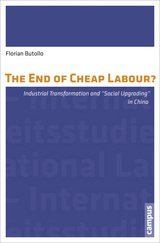
In The End of Cheap Labour?, Florian Butollo investigates the recent transformation of the garment and LED lighting industries in the Pearl River Delta, China’s largest industrial hub. He reveals that industrial upgrading rarely supports improvements in working conditions and the basic employment pattern; and this failure of “social upgrading” threatens to undermine the desired rebalancing of the Chinese economy. Butollo demonstrates that the implementation of collective labor rights remains an important obstacle in the future of the Chinese growth model.

"A richly detailed, well-crafted portrait of a cross section of autoworkers in the midst of an identity crisis and a crisis gripping the U.S. auto industry."--Frank Hammer, President, United Auto Workers Local 909
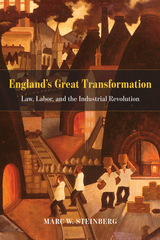
Building his argument on three case studies—the Hanley pottery industry, Hull fisheries, and Redditch needlemakers—Steinberg employs both local and national analyses to emphasize the ways in which these master-servant laws allowed employers to use the criminal prosecutions of workers to maintain control of their labor force. Steinberg provides a fresh perspective on the dynamics of labor control and class power, integrating the complex pathways of Marxism, historical institutionalism, and feminism, and giving readers a subtle yet revelatory new understanding of workplace control and power during England’s Industrial Revolution.
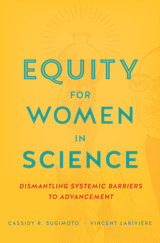
The first large-scale empirical analysis of the gender gap in science, showing how the structure of scientific labor and rewards—publications, citations, funding—systematically obstructs women’s career advancement.
If current trends continue, women and men will be equally represented in the field of biology in 2069. In physics, math, and engineering, women should not expect to reach parity for more than a century. The gender gap in science and technology is narrowing, but at a decidedly unimpressive pace. And even if parity is achievable, what about equity?
Equity for Women in Science, the first large-scale empirical analysis of the global gender gap in science, provides strong evidence that the structures of scientific production and reward impede women’s career advancement. To make their case, Cassidy R. Sugimoto and Vincent Larivière have conducted scientometric analyses using millions of published papers across disciplines. The data show that women are systematically denied the chief currencies of scientific credit: publications and citations. The rising tide of collaboration only exacerbates disparities, with women unlikely to land coveted leadership positions or gain access to global networks. The findings are unequivocal: when published, men are positioned as key contributors and women are relegated to low-visibility technical roles. The intersecting disparities in labor, reward, and resources contribute to cumulative disadvantages for the advancement of women in science.
Alongside their eye-opening analyses, Sugimoto and Larivière offer solutions. The data themselves point the way, showing where existing institutions fall short. A fair and equitable research ecosystem is possible, but the scientific community must first disrupt its own pervasive patterns of gatekeeping.

Expanding Class compares Brabant’s quaint central shoemaking district to its electrical boomtown Eindhoven, home of the enormous Philips Corporation. It introduces the concept of "flexible familism," a sociological phenomenon in which family daughters were employed to facilitate a cheap and ample labor force. Industrialists manipulated and fostered flexible familism to ensure the discipline and loyalty of the working-class community. By using the industrial Netherlands as a paradigm, Kalb reveals new and productive ways to examine class construction and the development of labor history in other countries over the past thirty years, steering a path between the two schools of thought—cultural and economic—that have dominated labor history discussions in recent years.
READERS
Browse our collection.
PUBLISHERS
See BiblioVault's publisher services.
STUDENT SERVICES
Files for college accessibility offices.
UChicago Accessibility Resources
home | accessibility | search | about | contact us
BiblioVault ® 2001 - 2024
The University of Chicago Press









